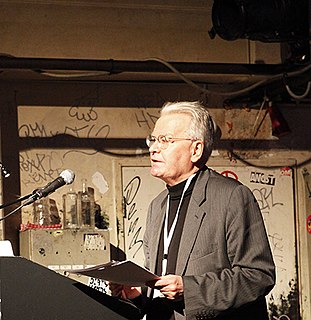A Quote by Mason Cooley
Modernism: the books are as hard to understand as life itself.
Related Quotes
Those wretches tainted with the error of Indifferentism and Modernism hold that dogmatic truth is not absolute, but relative: that is, that it must adapt itself to the varying necessities of the times and the varying dispositions of souls, since it is not contained in an unchangeable revelation, but is, by its very nature, meant to accommodate itself to the life of man.
Modernism was a big thing for me, coming from a father who was very interested in art, music and culture - and almost always Italian art, music and culture. One good thing about Italians is that culture is part of everyday life. But Modernism is a movement of the past. The idea of a Modernist building as a sculpture set on a pedestal of grass is a part of Modernism that I'm not so crazy about.
Modernism in a way, early modernism, for instance, in pictures, was turning against perspective and Europe. And all early modernism is actually from out of Europe, when you think of cubism is African, is looking at Africa, Matisse is looking at the arabesque, Oceania. Europe was the optical projection that had become photography, that had become film, that became television and it conquered the world.





































